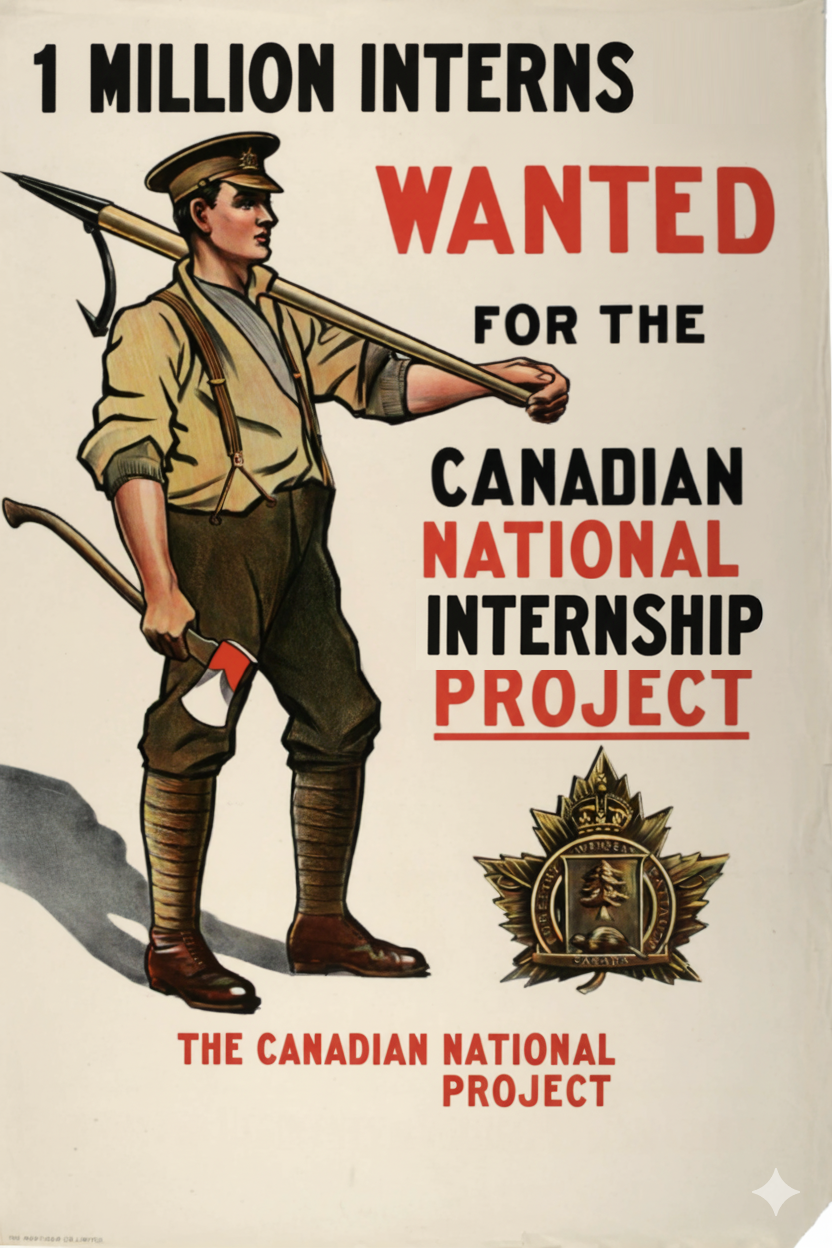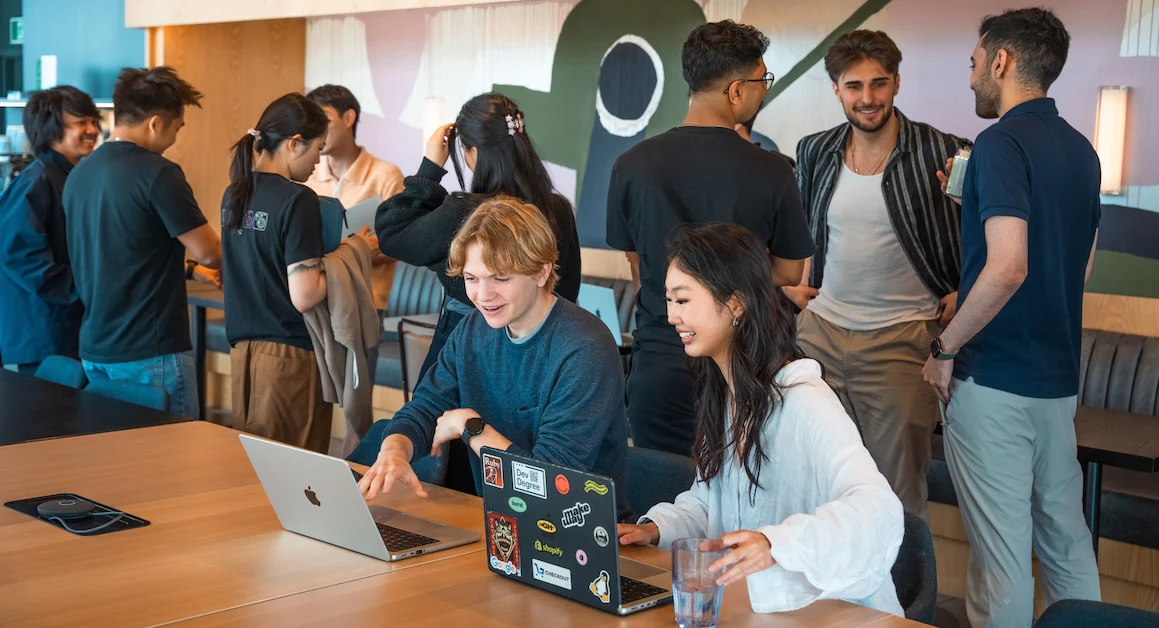Ambitious Canada Part 6: A Million Internships

In my time, if you wanted to be a computer engineer, you had to go to university. It was the only place this level of specialized knowledge lived. For example, if you wanted to build and program chips one day, there was simply no other way to learn the details and math of semiconductor physics.
Recently, I was browsing YouTube and watched a video on how p-n junctions in silicon diodes work. You can watch it here.

I’m telling you: this video is more engaging, and more effective than the very best class I ever took from the very best professor at my university.
This isn’t an isolated case. It’s everywhere. You can learn the raw details on how to build the most advanced AI models from scratch, right now, for free, from video series on the internet. This isn’t just true for tech. From fine art to construction to digital marketing, online courses are now routinely of a higher quality than what is available at our most expensive institutions.
But what you don’t get from the internet is practical experience.
We Are Honoring a Broken System
Now, I understand that education is more than just content. It’s about practice, feedback, mentorship, and connection. I’m not dismissing the value of great teachers.
But we have to be honest about how the knowledge and work is changing.
I went to one of the hardest programs at one of the hardest schools in Canada. And the truth is, I didn’t learn much in the classroom. Where I thrived – where I truly learned to be an engineer – was in the workplace. This was only because I was part of a co-op program where nearly half my “schooling” was in real work placements.

When I talk to the best engineers and entrepreneurs I know, they all tell me the same story: the traditional school system was not where they gained their most valuable skills.
So here is the central, absurd question: Why do we live in a world that forces productive and ambitious young people to get four-year degrees (after 13 years of regular school) when we… look why have we have built a massive, multi-billion dollar system that puts our next generation in debt to get a credential that most AI forward people will tell you has diminishing value?
The Ambitious Idea: A National Apprenticeship Program
If we want to build an ambitious Canada, we need to rethink the role of one of the scariest institutions: universities and education.
My suggestion is that Canada moves to a national program of paid apprenticeships and internships. We must re-orient our entire post-secondary system. This means shortening traditional in-class schooling and making paid, on-the-job training the new default for the all or the majority of our students.
By 2030, 80% of our new unversity and college grads should have at least 24 months of practical in-the-field work experience by the time they graduate.
Here’s how we make it work:
Tie R&D Funding to Training: We tie all government R&D funding directly to this mission. If a company wants public money – a grant, a loan, a tax credit—they must be an active participant in training our next generation.
(I realize most of my examples in this entire text are tied to R&D jobs, because that is the world I know, but I believe apprenticeships would be valuable to almost all jobs.)
Mandate Transparency: We require companies to publicly advertise their “apprentice ratio”—their number of active apprentices and interns relative to their total employees. Let the market, new graduates, and the public see who is truly committed to building our country’s talent and who is a free-rider.
Create a New Social Contract: For students who benefit from this program – through subsidized tuition or the specialized loans that we already offer to all students – we create a promise: you must stay and build in Canada for four years after graduation. If you decide to leave the country before that, those loans and subsidies become immediately repayable. We are investing in Canada’s future, and we expect those who benefit to be a part of it.
The Payoff is Immense

This isn’t an incremental tweak. It’s a fundamental shift in our thinking, and the benefits would be transformative:
-
Our students would graduate with the most practical, real-world experience on the planet. And they would get a foot in the door of a workplace that is harder to get into these days.
-
Our workplaces would get a steady stream of affordable, ambitious, and highly-trained young talent.
-
Our next generation would be burdened with far less student debt. (There’s a reason Waterloo, the home of co-op, has one of the highest student loan repayment rates in the country.)
-
Our country would be massively more prepared for an AI-dominated era, where static knowledge is a commodity and practical, real-world experience is a more valuable resource.
-
Our citizens would become productive members of the workforce for more years of their lives, contributing and compounding their skills sooner.
Let’s stop pretending our old model works. Let’s shake up how we think of school and R&D funding. Let’s invest in our next generation. Let’s make Canada famous for having the smartest graduates with the most practical, hands-on experience – something that matters more in the post-AI world than ever.
-ali asaria